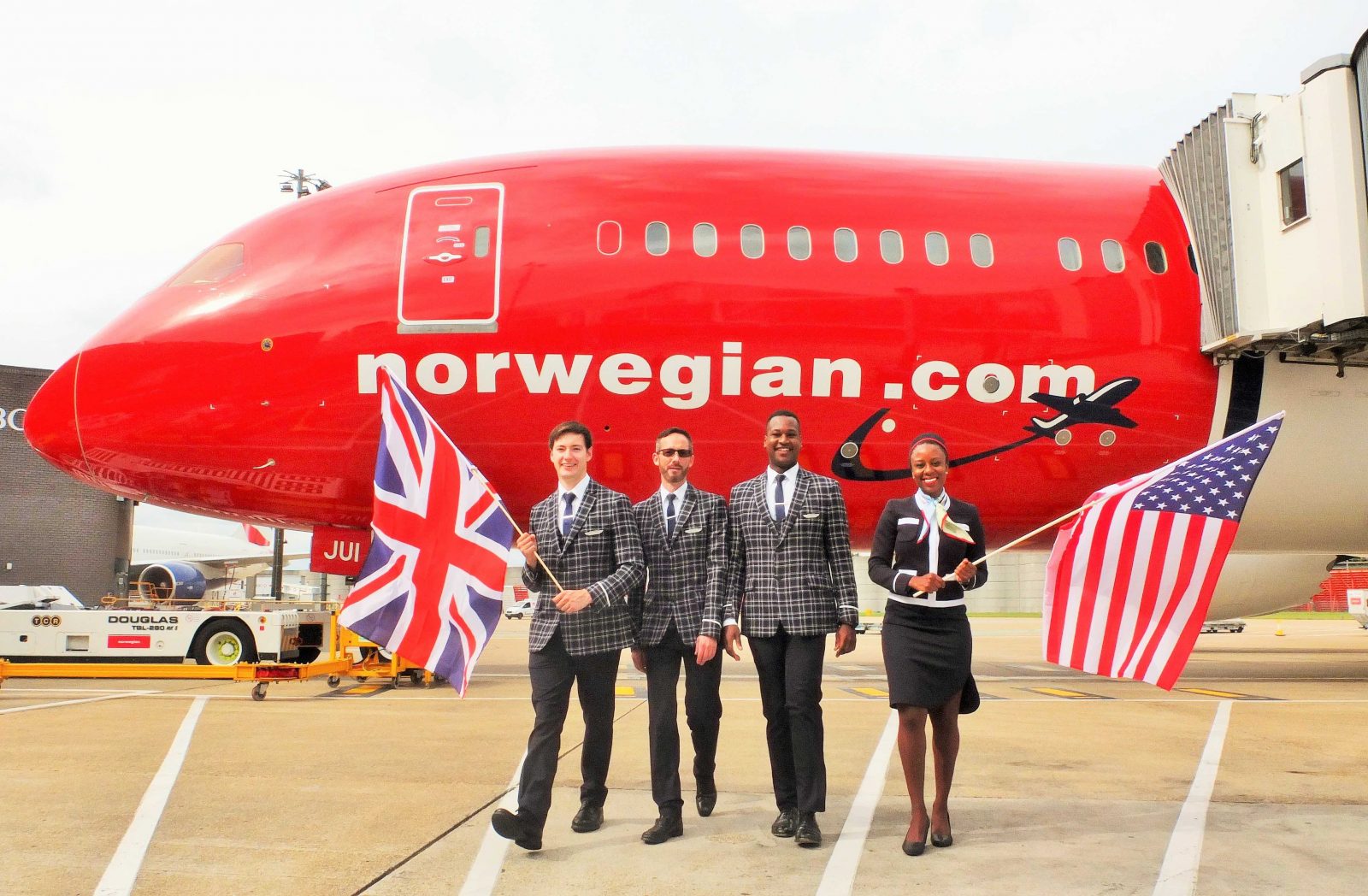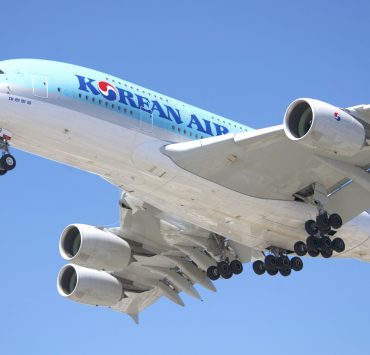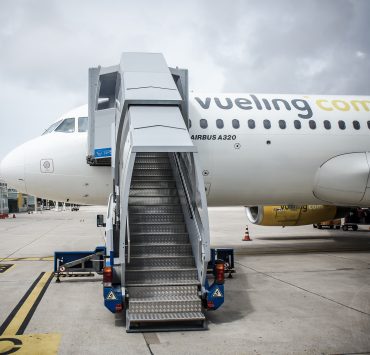
Norwegian’s co-founder and chief executive, Bjorn Kjos could find himself becoming more receptive to a possible takeover from International Consolidated Airlines Group (IAG) if a new law introduced to the U.S. House of Representatives is approved.
A few days ago, Kjos told reporters he hadn’t “thought about selling at all” after IAG, the owner of British Airways, Iberia and Aer Lingus announced it had acquired a 4.6% stake in Norwegian and was interested in a possible takeover of the world’s 6th largest low-cost airline.
But reasons for Kjos to start thinking about selling the airline are starting to mount – not least, Norwegian’s growing debt mountain. Some estimates put the carrier’s debt as high as $6.8 billion USD and last year, the carrier made a loss of $117m as it rapidly expanded its long-haul business into Singapore, Buenos Aires and of course, the USA.
And it’s the U.S. market that Norwegian has been targeting the hardest – In the last few years, the carrier has embarked on an aggressive expansion plan, starting services to 15 destinations throughout the United States, such as New York JFK, Boston, Chicago and Seattle.
Most of these destinations are served by Norwegian’s popular Boeing 787 Dreamliner’s but the airline has even started to connect secondary airport’s like Providence to Dublin or Hartford to Edinburgh using next-generation Boeing 737MAX aircraft.
Is Norwegian a ‘Flag of Convenience’ carrier?
But while all of Norwegian’s planes share the same bold red and white paint scheme, they aren’t all registered to the same company. The airline’s parent company is called Norwegian Air Shuttle ASA (NAS) and is based in Fornebu, Norway.
But there’s also Norwegian Air International Ltd. (NAI) based in Dublin, Ireland and Norwegian UK (NUK) based in London. These companies operate Norwegian’s services to the U.S. and other long-haul routes.
Critics say Norwegian deliberately set up these separate corporate entities as ‘flags of convenience’ carriers – done so in order to avoid onerous Scandanavian regulations and labour practices. As a result, Norwegian can lower its labour costs and undercut established competitors like U.S. legacy carriers.
The FAA Reauthorization Act of 2018
Unsurprisingly, airline unions and other lobbyists in the U.S. have not been happy with Norwegian’s aggressive expansion and have been pushing hard to limit its reach.
A few days ago the House Transportation and Infrastructure Committee introduced a bipartisan reauthorization act for the U.S. Federal Aviation Authority (FAA) – The FAA Reauthorization Act of 2018. It’s been a long time coming and has already seen a lot of changes but the proposed five-year bill should hopefully secure FAA funding, increase investment in aviation infrastructure and introduce a number of reforms.
Introduced by Committee Chairman Bill Shuster, the Republican Representative for Pennsylvania’s 9th congressional district, the bill is said to put “American jobs, American innovation, and the travelling public first.”
Putting ‘American jobs first’
And it’s Section 530 (C) of the bill that will be worrying Norwegian’s executives – “Preventing entry into United States markets by flag of convenience carriers”. The bill goes onto explain that a flag of convenience is:
“a foreign air carrier that is established in a country other than the home country of its majority owner or owners in order to avoid regulations of the home country.”
Obviously, this is open to a lot of debate and just because the section has been included in the proposed bill doesn’t mean it will make it into law. Nonetheless, the International Brotherhood of Teamsters has applauded the provision saying it “would bar European-based airlines from undermining U.S. labour rights or standards.”
How would selling to IAG help?
“The measure makes clear under the European Union-U.S. Open Skies agreement that labour standards shouldn’t be upended by foreign airlines, and bars the Department of Transportation from issuing an air carrier permit or an exemption from the rules to any EU provider,” explained Teamsters Airline Division Director Capt. David Bourne.
“The Teamsters implore Congress to pass this provision so the rights of U.S. airline workers are protected,” he added.
So how would selling to IAG help Norwegian? As an Anglo-Spanish airline group, headquartered in Madrid, Norwegian wouldn’t have to worry about Scandinavian labour practices anymore – or at least, worry about how to avoid such regulations.
Increasing the minimum rest period for U.S. flight attendants
Also included in the proposed Act is a provision to raise the minimum amount of rest for flight attendants between shifts to 10 hours from the current eight hours. The proposal would prevent the rest period being reduced under any circumstances.
At present, the Association of Flight Attendants says the current eight hour rest period “includes travel to the hotel, finding time to eat, preparing for sleep and doing the same in reverse before starting the next duty period of up to 14 hours.” The union claims the opportunity for sleep is actually often reduced to just 4-5 hours.
Mateusz Maszczynski honed his skills as an international flight attendant at the most prominent airline in the Middle East and has been flying throughout the COVID-19 pandemic for a well-known European airline. Matt is passionate about the aviation industry and has become an expert in passenger experience and human-centric stories. Always keeping an ear close to the ground, Matt's industry insights, analysis and news coverage is frequently relied upon by some of the biggest names in journalism.









